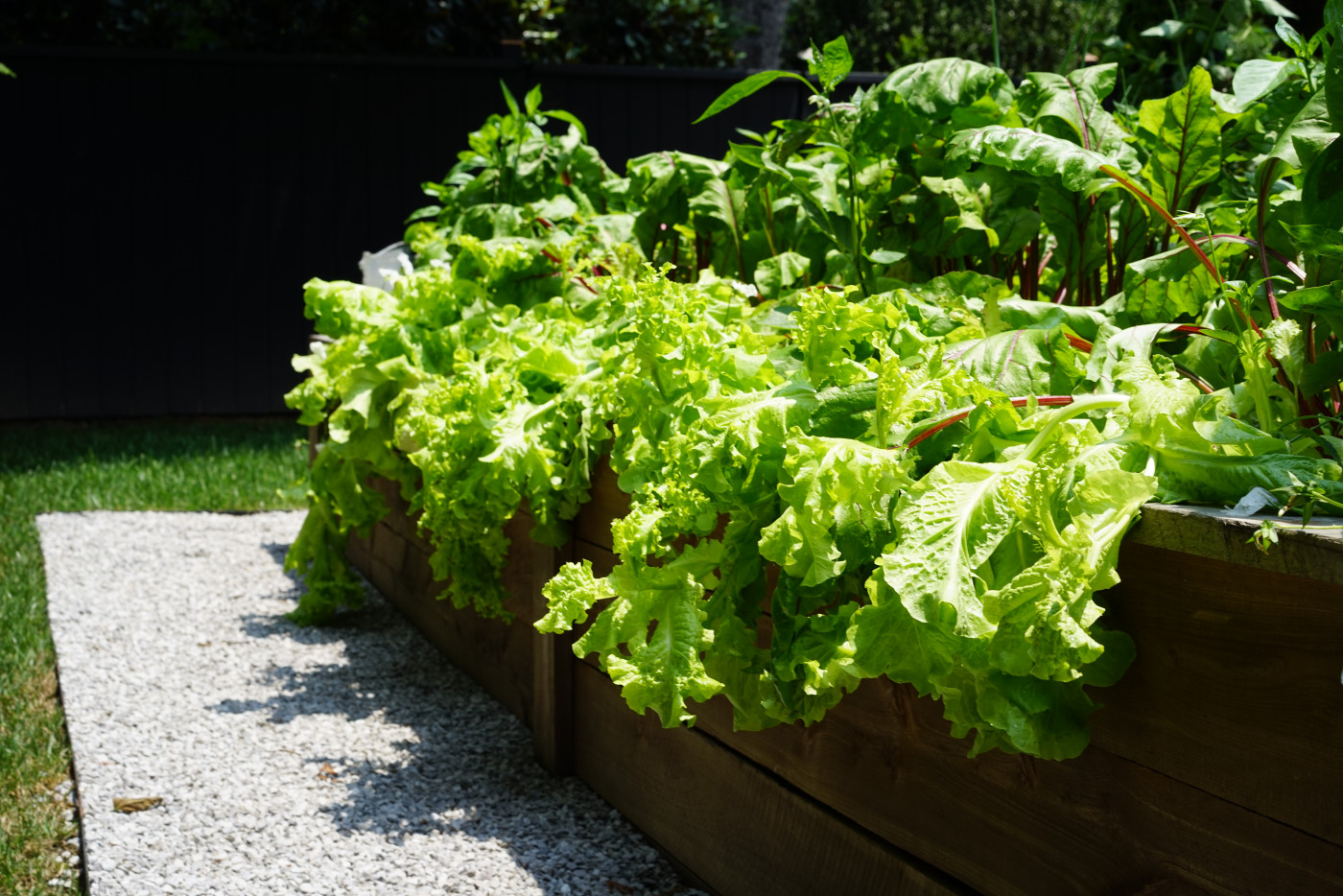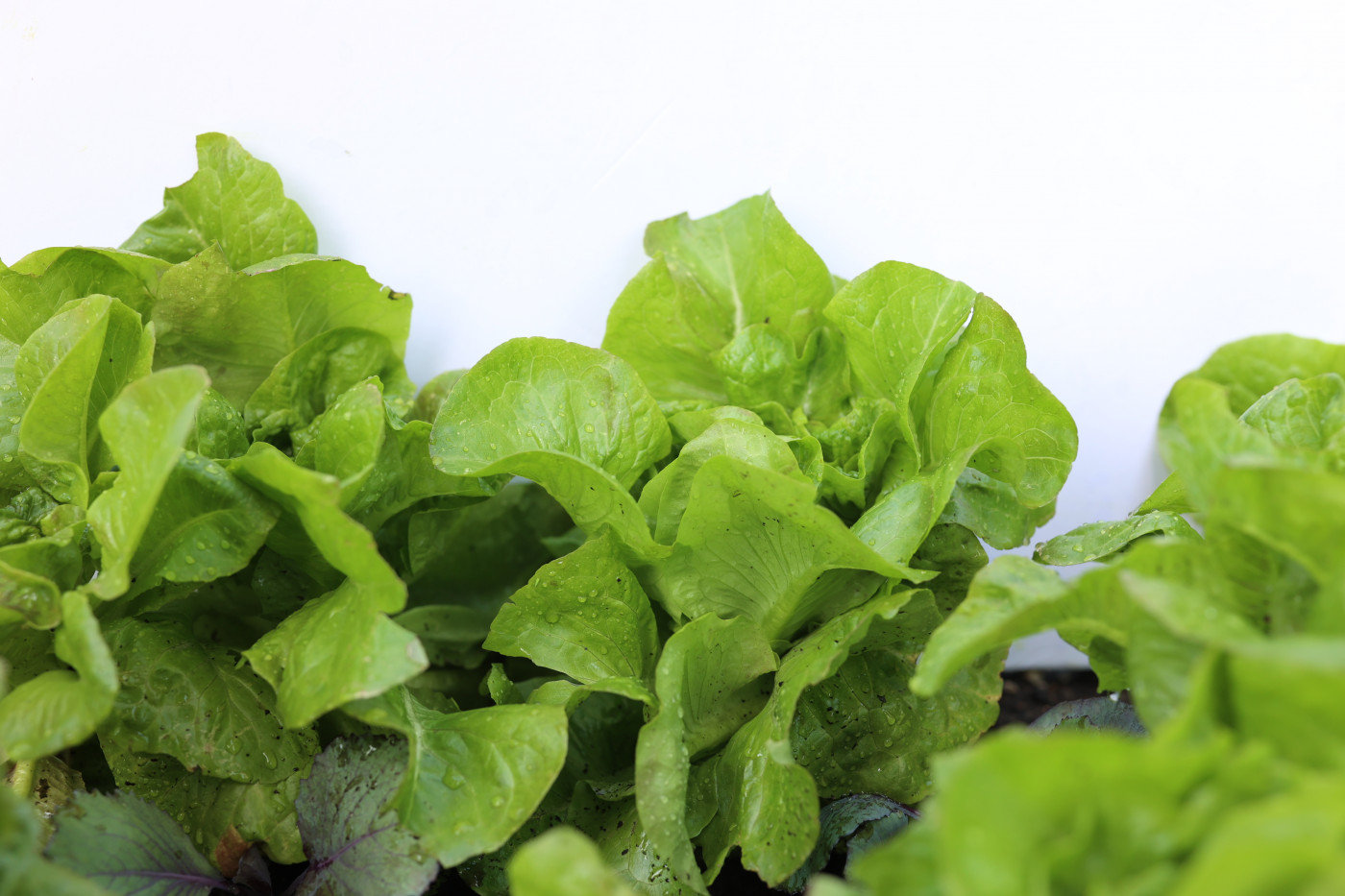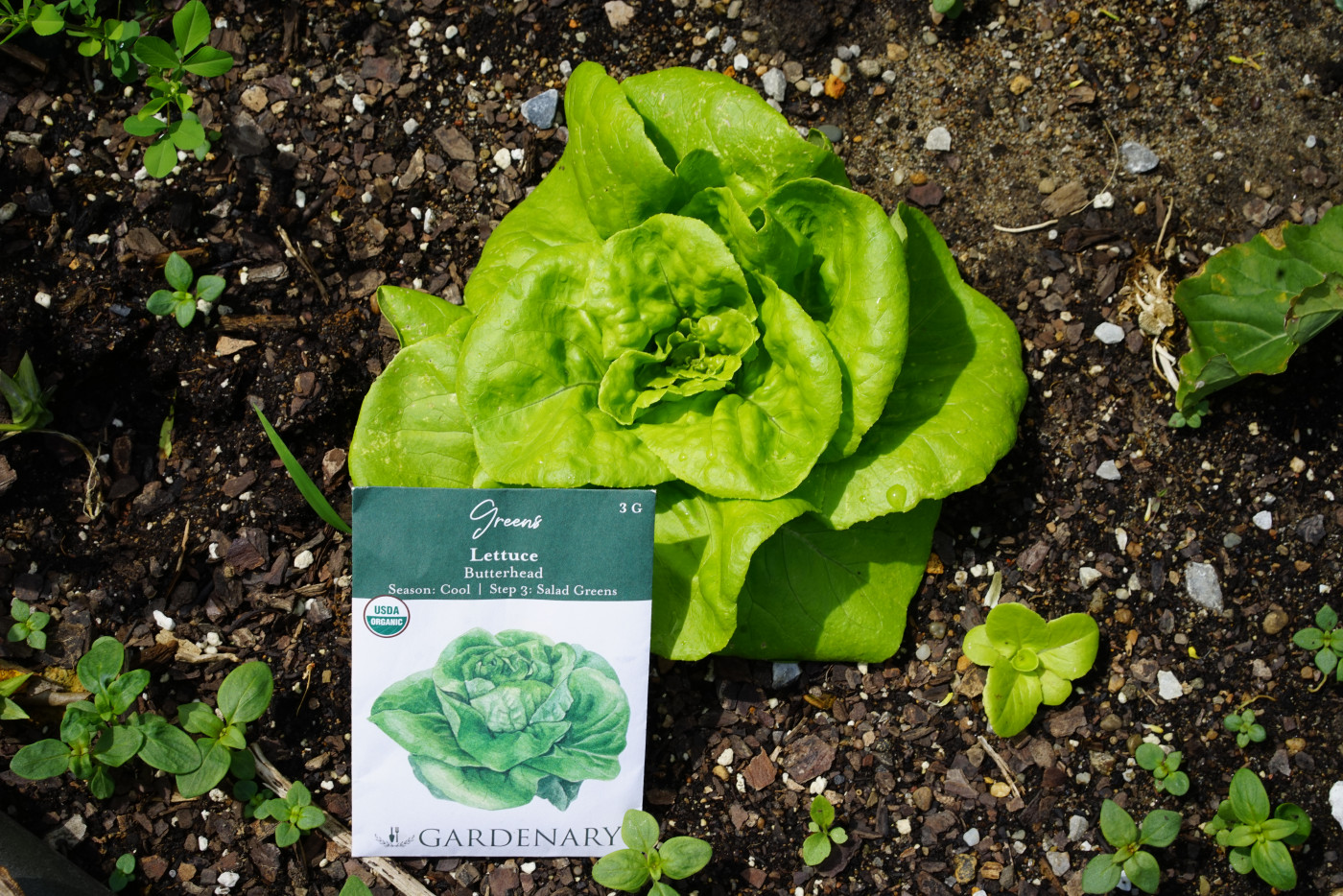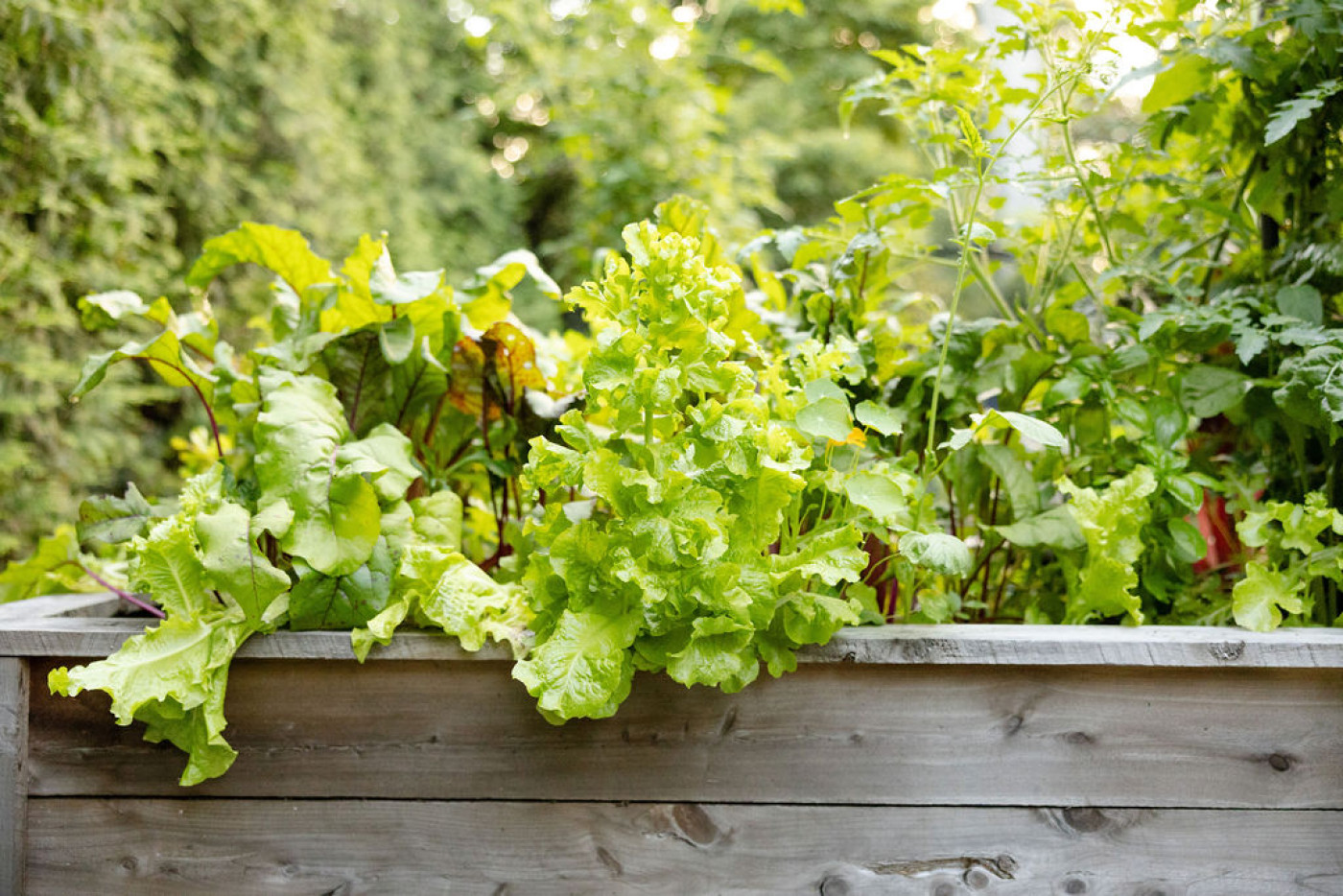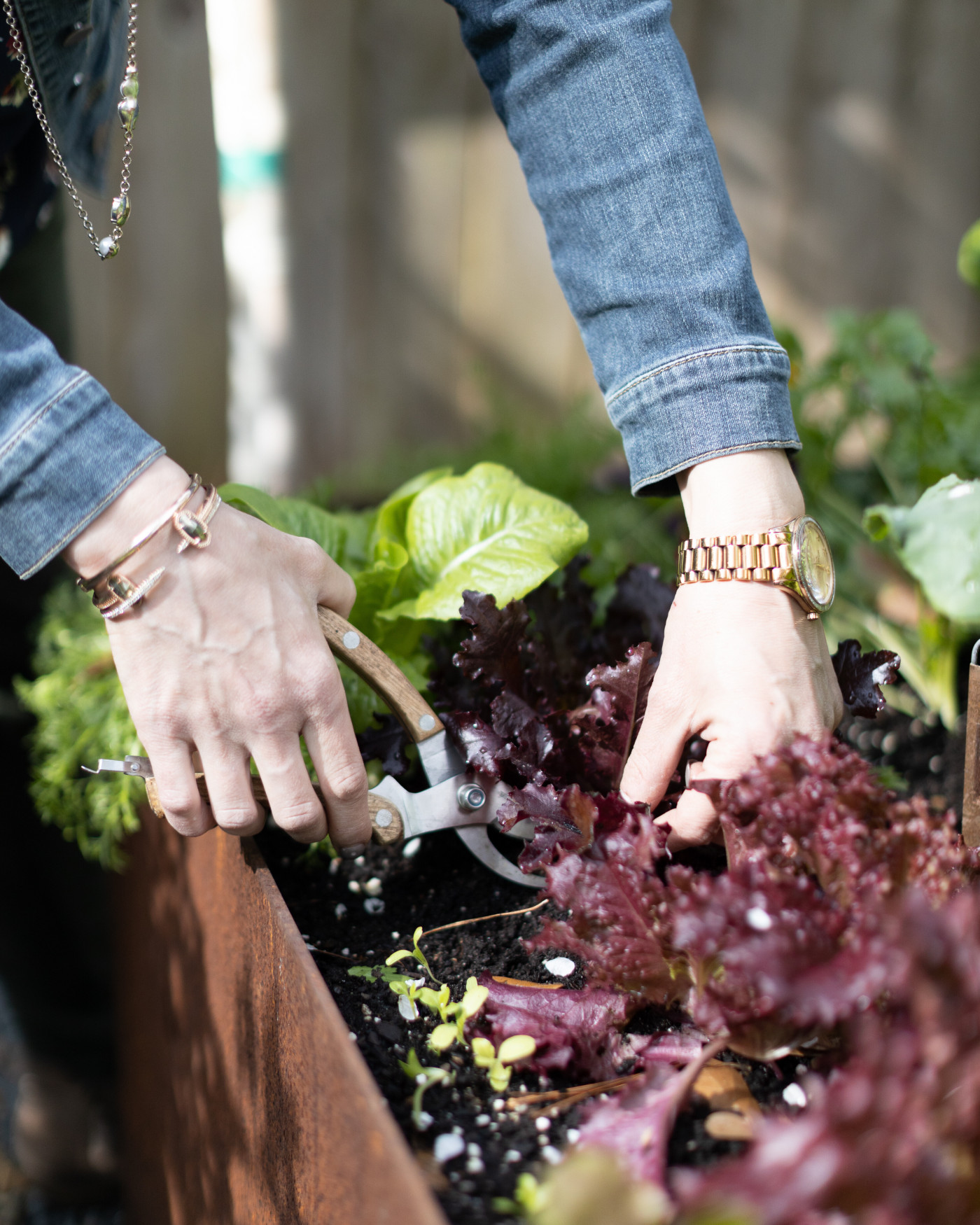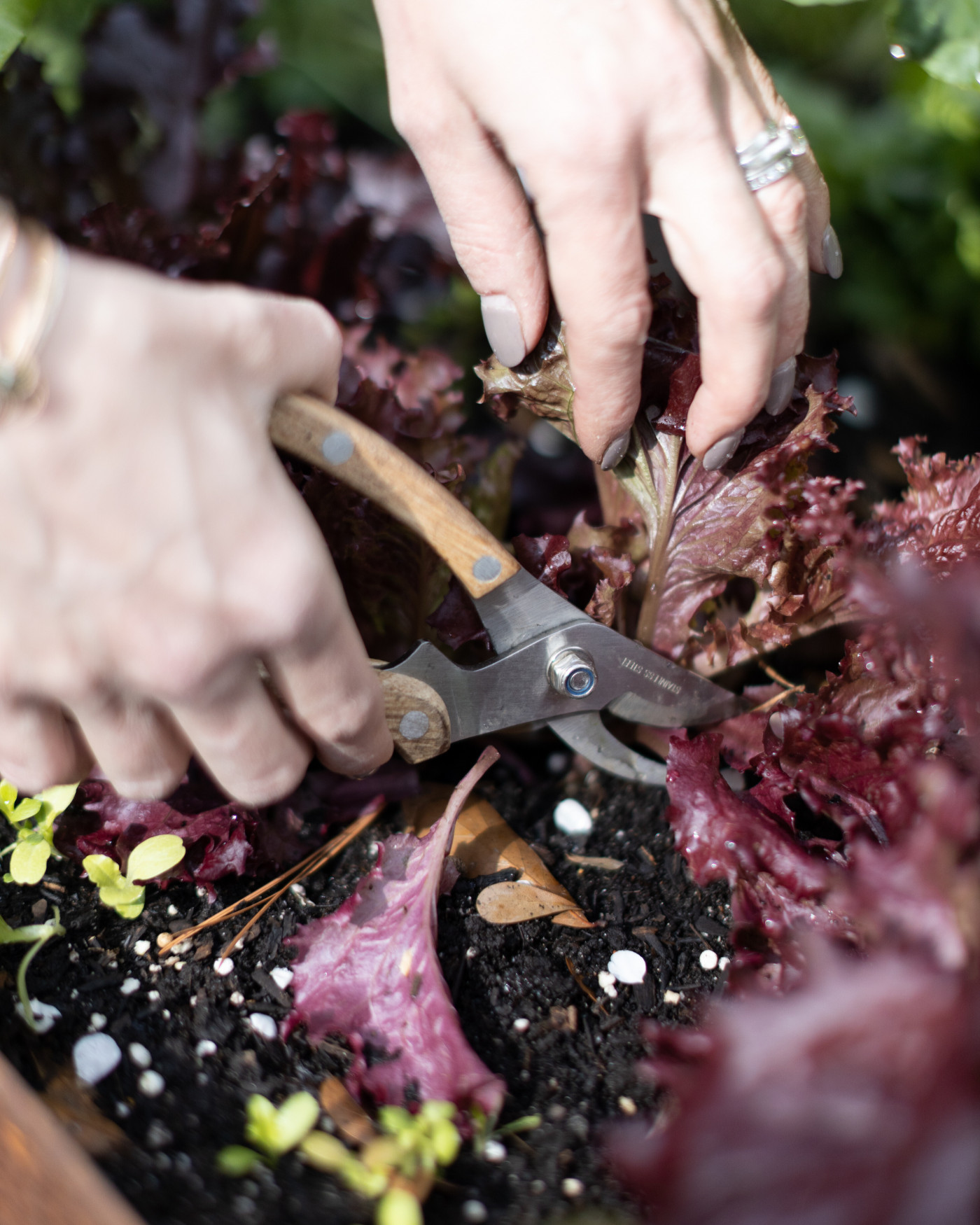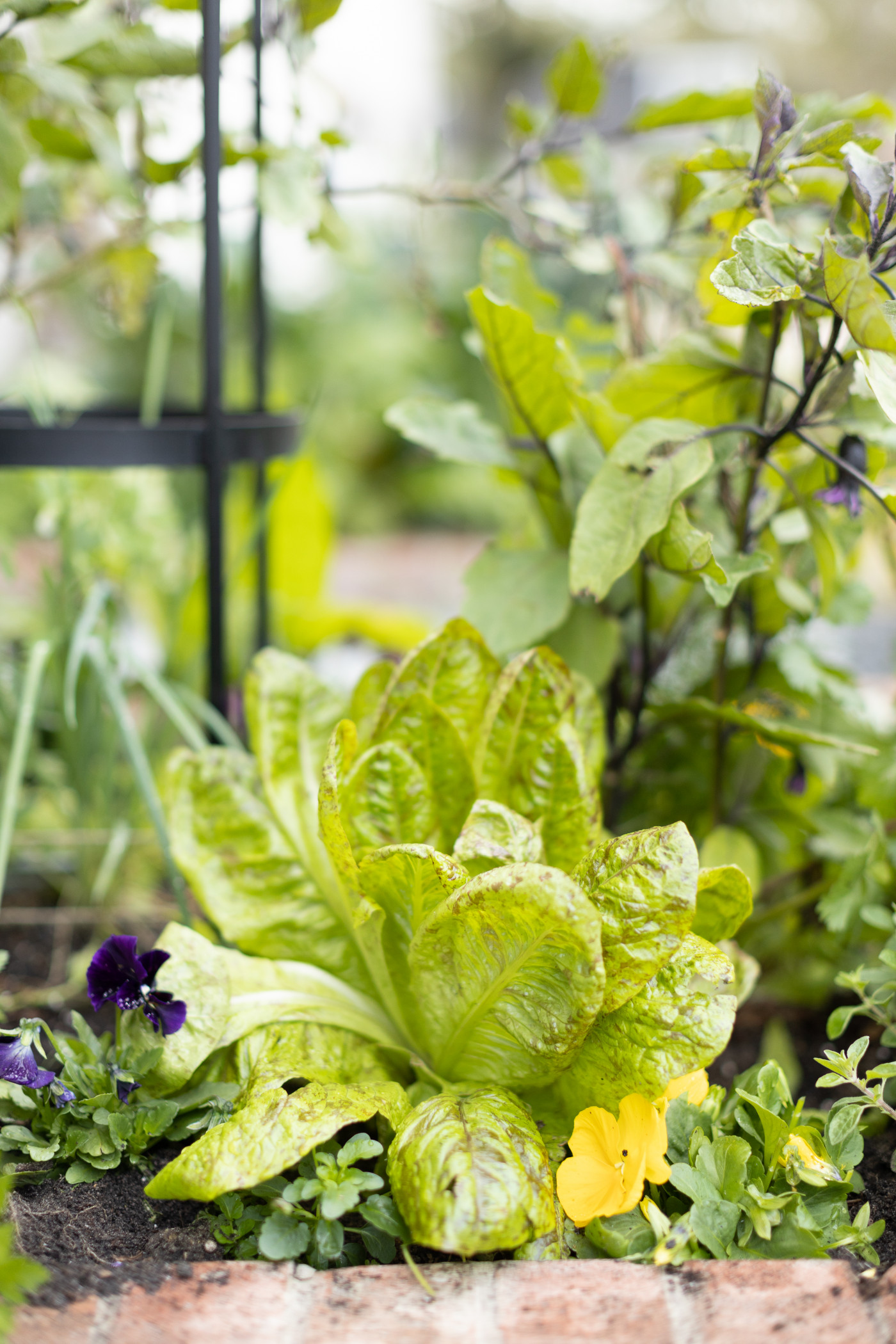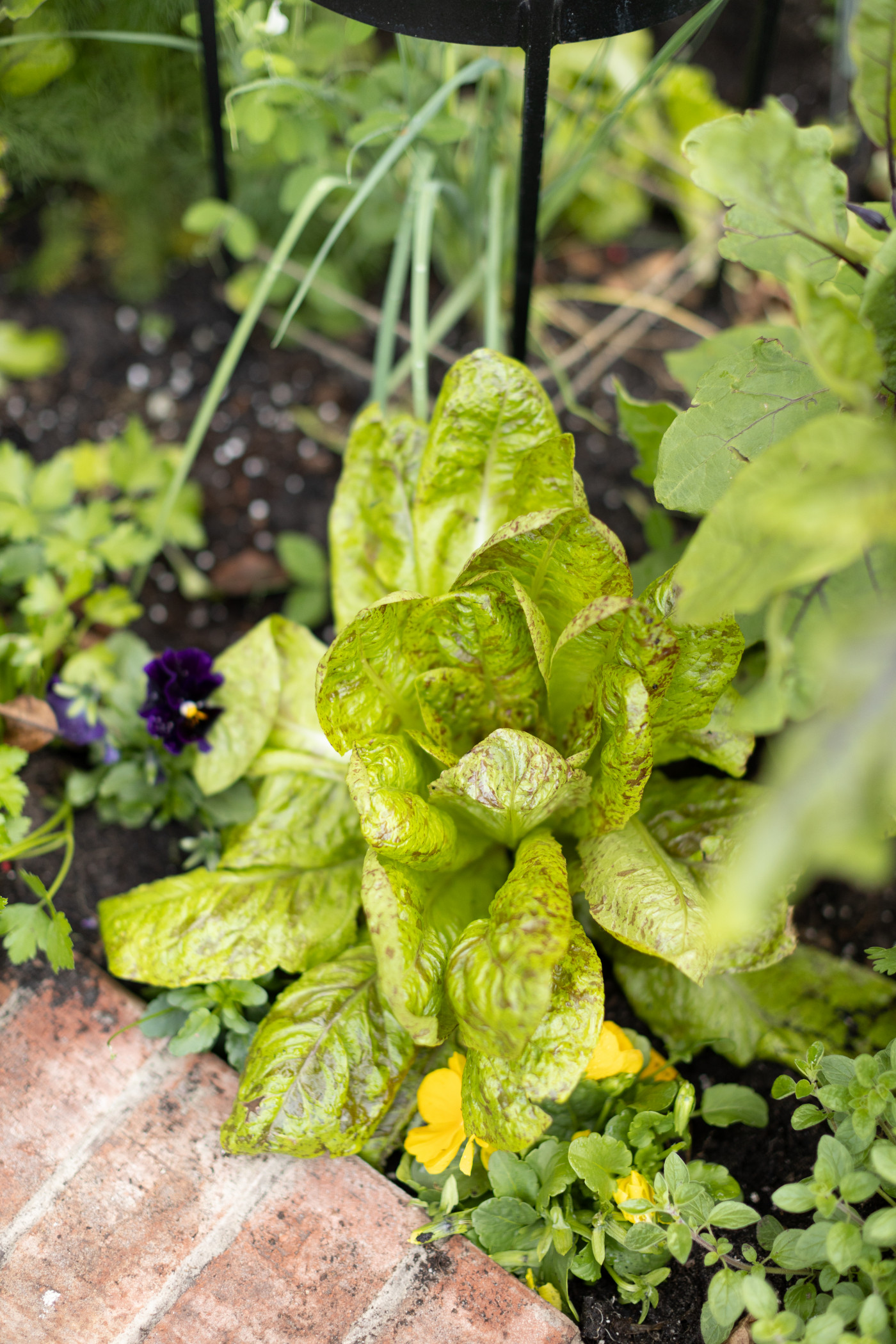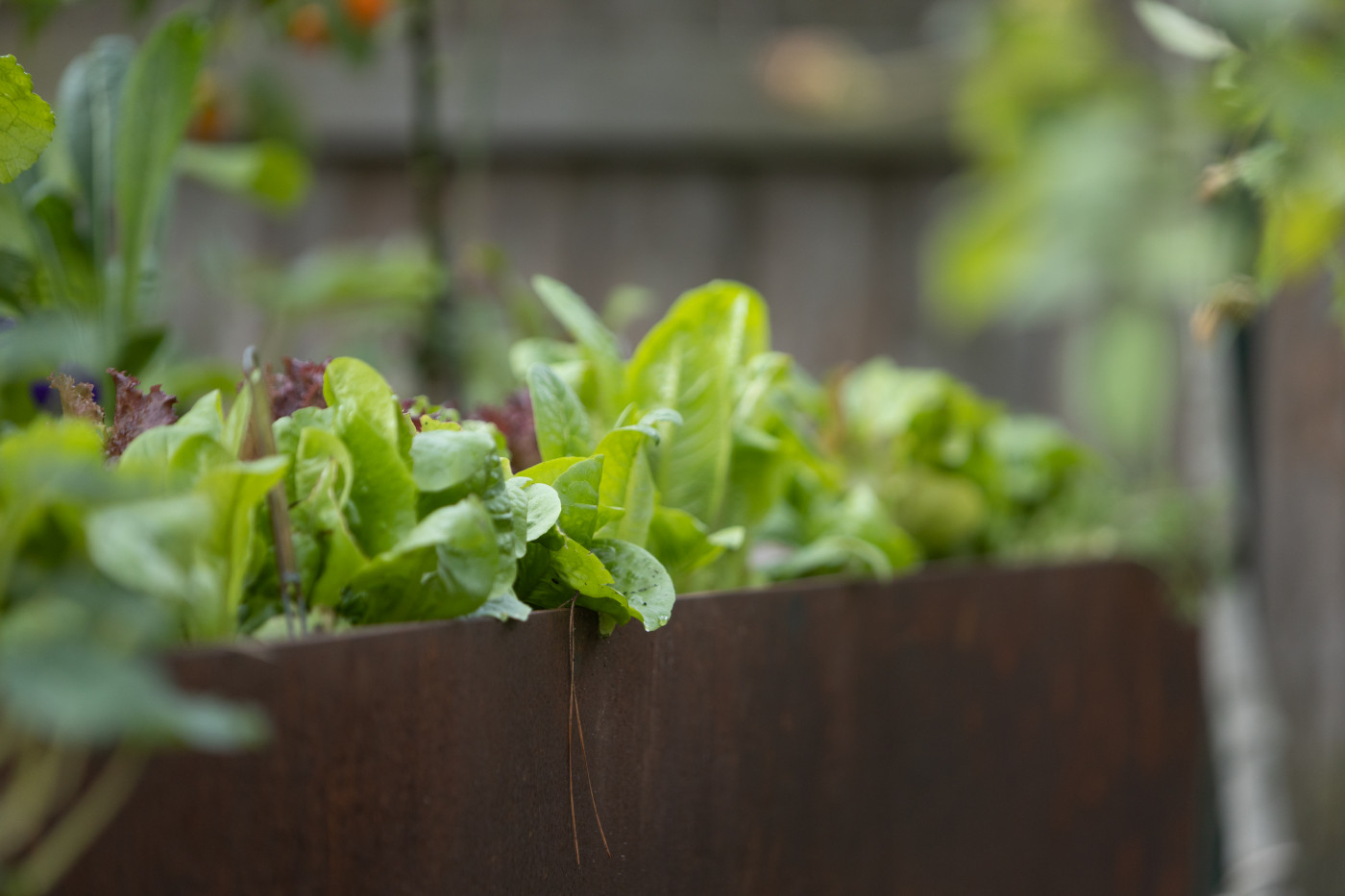One of my favorite things about gardening is discovering just how many different types of plant varieties there are—and lettuce is no exception. Grocery store shelves might only offer romaine, iceberg, and maybe a little spring mix, but once you grow your own, you discover a whole new world of colors, textures, and flavors.
Over the years, I’ve grown lettuce in the hot and humid gardens of Houston, the short and sweet summers of Chicago, and the rolling seasons of Nashville. Each place has taught me something new about when to grow lettuce, how to grow lettuce from seed, and even can I grow lettuce indoors? (spoiler: yes, you can!).
Let’s dig into some of the very best types of lettuce to grow in your garden, no matter where you live.
At a Glance
- The best types of lettuce to grow in your garden include Bibb, Black-Seeded Simpson Looseleaf, Butterhead, Gourmet Lettuce Mix, Green Leaf Lettuce, Lollo Rossa, Flashy Troutback, and Paris Island Romaine.
- Out of all these, my favorite is the Gourmet Lettuce Mix, with its colorful blend of red, speckled, and green leaves that keep my harvests fresh and exciting.
What Time of Year Is Best to Grow Lettuce?
Lettuce thrives in the cool seasons. In Houston, I learned to get my lettuce seeds in the soil by January so they could finish before May’s heat. In Chicago, lettuce became my spring and fall companion, since summer was usually too hot. And in Nashville, I enjoyed a long lettuce season, planting in early spring, again in late summer, and sometimes harvesting into November.
If you’re asking is August too late to plant lettuce?, the answer depends on your climate. Northern gardeners can plant for a fall harvest, while Southern gardeners should stick to heat-tolerant types like Lollo Rossa or Flashy Troutback.
Get the complete Salad Garden School
Learn the step by step to plant, set up, and grow your own organic salad garden and enjoy fresh greens for at least 6 months each year, no matter where you live.

What Is the Best Lettuce for a Garden?
If I had to choose just one, I’d go with a Gourmet Lettuce Mix. These blends are colorful, versatile, and incredibly rewarding. In my Nashville raised beds, I grew a mix of reds, speckled beauties, and tender greens, and every harvest looked like a restaurant-worthy salad. The best part? They’re quick to grow and perfect for cut-and-come-again harvesting, so one sowing can keep you in fresh greens for weeks.
Bibb Lettuce
Bibb lettuce is a compact, tender Butterhead variety that feels downright luxurious on the plate. I especially loved growing it in containers in Nashville, where it thrived in small spaces. If you’ve ever wondered can I grow lettuce indoors?, Bibb is an excellent choice for pots near a sunny window. Its soft, buttery leaves are ready in about 50 to 60 days, but you can harvest baby leaves much sooner.
Find your Bibb Lettuce seeds here.
The Gardenary Cool Season Garden Planner
The secret to cool season gardening is knowing your timing, picking the right crops, and staying consistent—this planner walks you through it, step by step.
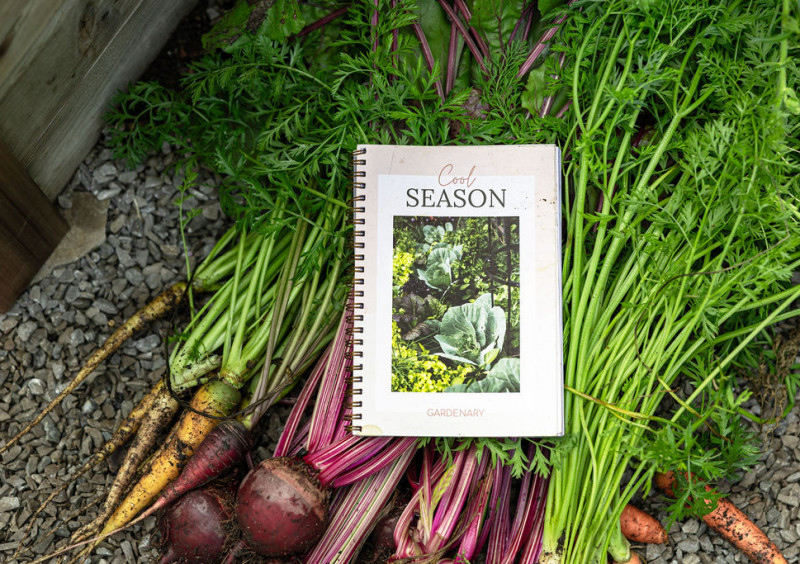
Black-Seeded Simpson Looseleaf Lettuce
If you’re asking which is the easiest lettuce to grow?, Black-Seeded Simpson is the answer. It was the first variety that truly boosted my confidence as a gardener in Chicago. Looseleaf lettuces don’t bother forming heads; they just keep putting out tender, ruffled leaves. And since they mature in as little as 45 days, they’re also among the fastest growing types of lettuce.
Butterhead Lettuce
Butterhead lettuces form loose, silky heads with a delicate sweetness. They were a treat in my Houston garden when planted in the cool months, and they carried on happily through spring in Chicago. In Nashville, I found they thrived in raised beds with consistent watering. They take about two months to fully mature, but you can always sneak a few outer leaves along the way. Their melt-in-your-mouth texture makes them worth every bit of garden space.
Ready to add Butterhead Lettuce to your garden? Grab seeds here.
Gourmet Lettuce Mix
Beyond being the best all-around garden lettuce, Gourmet Mixes also shine in small spaces. Many seed packets are labeled for “baby greens” or “container growing,” making them perfect for planter boxes. If you want variety without having to choose just one, these mixes are your best friend. A single sowing gives you reds, greens, and speckles—plus the joy of harvesting just a handful of leaves whenever you need them.
Grab a Gourmet Lettuce Mix for your garden here.
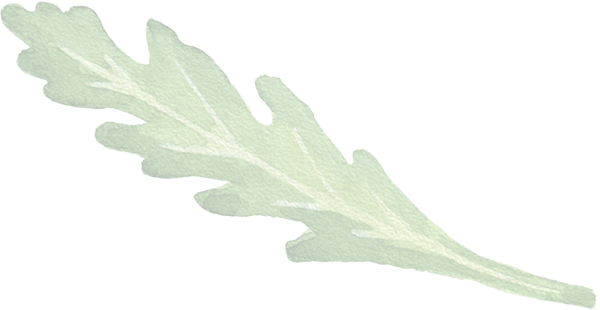

Join Our Free Online Workshop!
Ready to finally grow a garden that works? Join our free Garden Game Plan workshop and walk away with a clear, simple plan so you know exactly what to plant, where to plant it, and when, without the overwhelm.
Green Leaf Lettuce
Green leaf lettuce is the reliable workhorse of the garden. In Houston, I had to grow it early to beat the heat, but in Chicago, it happily filled beds all summer long. Its mild, crisp flavor makes it a kitchen staple. For those learning how to grow lettuce from seed, this is one of the easiest and most forgiving choices.
Get Green Leaf Lettuce seeds here.
Lollo Rossa Lettuce
If you want your garden to look fancy, Lollo Rossa is the star. Its frilly red curls make any salad pop with color. In Nashville, it proved more tolerant of late summer heat than many other varieties, which makes it a smart option if you’re worried August might be too late to plant lettuce. It’s not just pretty—it’s also tender with a slightly nutty flavor.
Want to try a red variety? Get your Red Leaf Lettuce seeds here.
Flashy Troutback Lettuce
Flashy Troutback is the showstopper. Its green leaves are speckled with burgundy, like nature splattered paint across them. When I grew it in Nashville, it quickly became the lettuce visitors pointed out first. It’s technically a Romaine type, so the leaves are crisp and full of flavor, but it also works well for cut-and-come-again harvests. Reaching maturity in about 55 days, it gives you both beauty and substance in one plant.
Paris Island Romaine
Romaine will always remind me of my Chicago garden. Paris Island Romaine produces tall, crunchy leaves that make the perfect Caesar salad. It takes a little longer—70 to 75 days—to reach full maturity, but you can start harvesting outer leaves earlier if you’d like. For gardeners who love cut-and-come-again harvesting, Romaine can play that role too.
Shop Paris Island Romaine seeds here.
Why Homegrown Lettuce Will Always Be the Best
Fresh lettuce straight from the garden is unlike anything you’ll find in the store. From Bibb to Flashy Troutback, from the heat of Houston to the breezes of Chicago, and the long seasons of Nashville, I’ve learned that there’s a type of lettuce for every garden and every gardener. The key is knowing when to grow lettuce, choosing varieties that fit your climate, and, of course, harvesting often.
Once you taste your first homegrown salad, you’ll never look at lettuce the same way again.


Lettuce Growing FAQs
What is the best lettuce for a garden?
The best lettuce for most gardens is a Gourmet Lettuce Mix. It offers color, variety, and steady harvests with the cut-and-come-again method.
Which is the easiest lettuce to grow?
Looseleaf types like Black-Seeded Simpson and Green Leaf are the easiest to grow. They germinate quickly, don’t need to form heads, and keep producing.
Is August too late to plant lettuce?
It depends on your climate. In cooler regions, August is perfect for planting lettuce for a fall harvest. In hot areas, choose heat-tolerant types like Lollo Rossa or Flashy Troutback.
What is the best lettuce to grow in a planter box?
Gourmet Lettuce Mixes and Bibb lettuce are ideal for planter boxes. They grow well in containers, don’t need much space, and can be harvested young.
Which lettuce is best for cut-and-come-again?
Looseleaf varieties, Gourmet Mixes, and even Romaine can be harvested cut-and-come-again, giving you fresh leaves for weeks.
What is the fastest growing type of lettuce?
Looseleaf lettuces like Black-Seeded Simpson are ready in just 45 to 50 days—and you can start harvesting baby leaves even earlier.
What time of year is best to grow lettuce?
The best time to grow lettuce is during the cool seasons—spring and fall—when temperatures stay between 45°F and 75°F.
Can I grow lettuce indoors?
Yes! You can grow lettuce indoors in containers with good light. Bibb and baby greens mixes are some of the best options for indoor growing.


